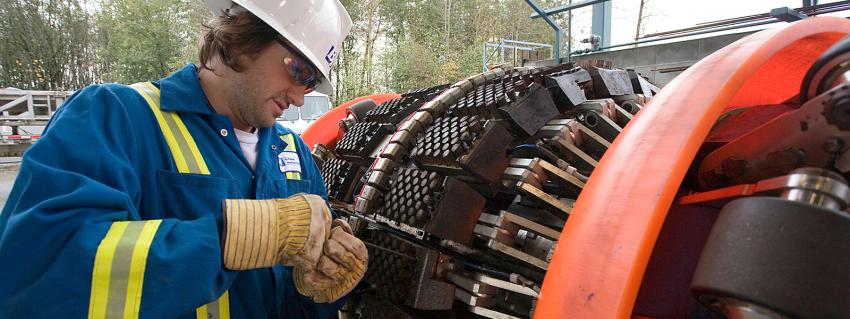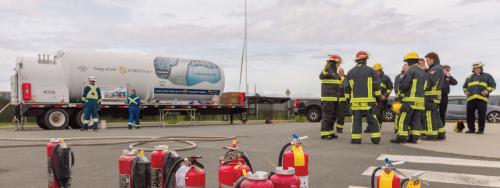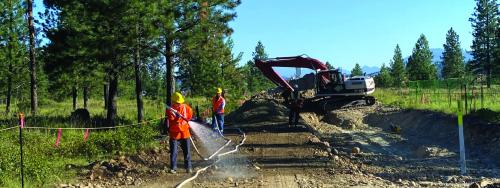Gas line pressure is monitored 24 hours a day at our system control centre. How do you know everything is operating safely?
We have a series of automated valves situated in key areas along the transmission system that monitor static pressure and pressure changes. If the gas line pressure suddenly rises or drops, the valve will close. This information is sent to our department so that a technician can immediately respond.
Why does FortisBC conduct helicopter inspections of the gas line?
A helicopter crew of four technicians oversees about 650 kilometres of gas line over very rugged and, in some cases, very inaccessible terrain. They’re on the lookout for geological or hydrological activity such as washouts and third party activity. But the work the technicians do on the ground can’t be replaced. Techs are always monitoring the depth of cover over the gas line at creek crossings and other locations.
FortisBC transmission employees take ownership in our gas lines and operate this system with pride. This type of attitude goes a long way to keep the system running safely.
Tell us about the electronic inspection tools that travel inside the gas line to search for defects that can’t be detected from the surface.
The internal line inspection process involves a variety of complex systems used to check gas line integrity. One system we use is… a magnetic field placed around the gas line. The data we receive tells us about the gas line’s wall thickness, metal loss, joint length and more.
Is there some way to prevent metal loss and retain the gas line’s wall thickness?
FortisBC has a corrosion department responsible for reducing the effects of metal loss due to natural metal breakdown.



